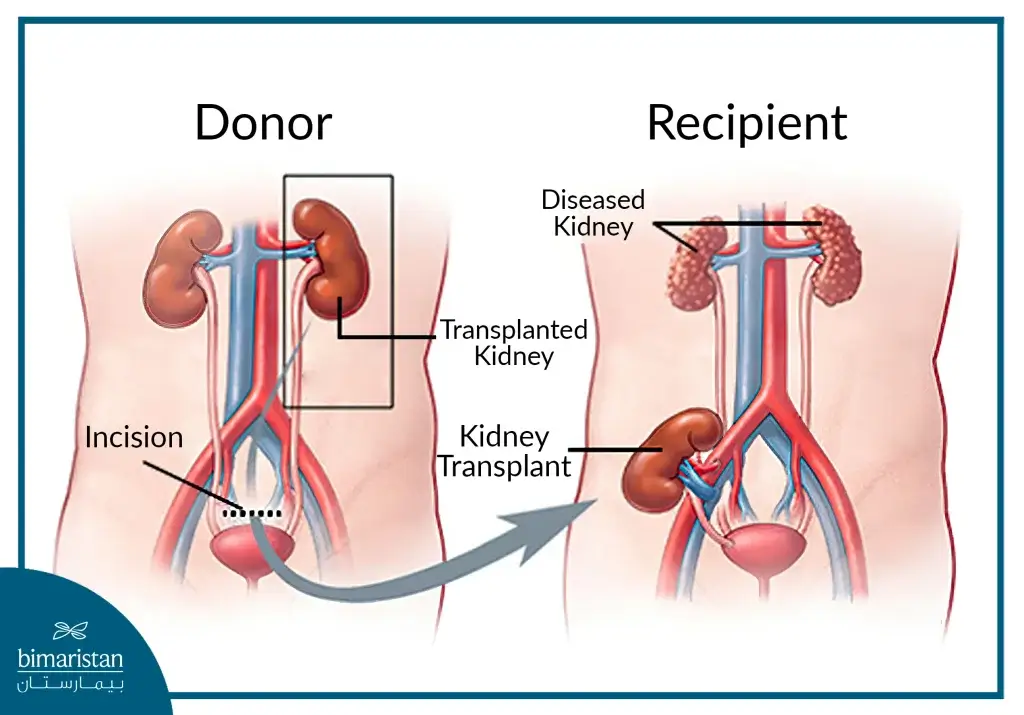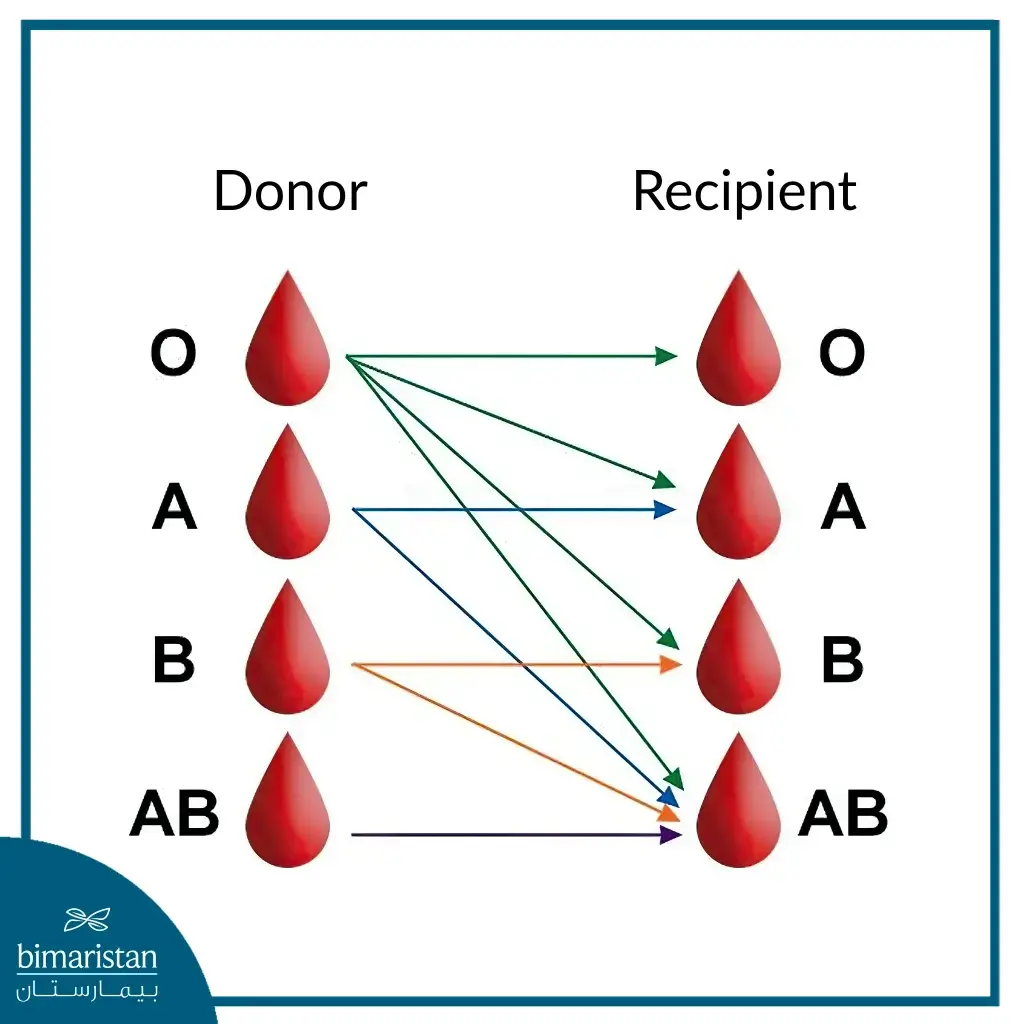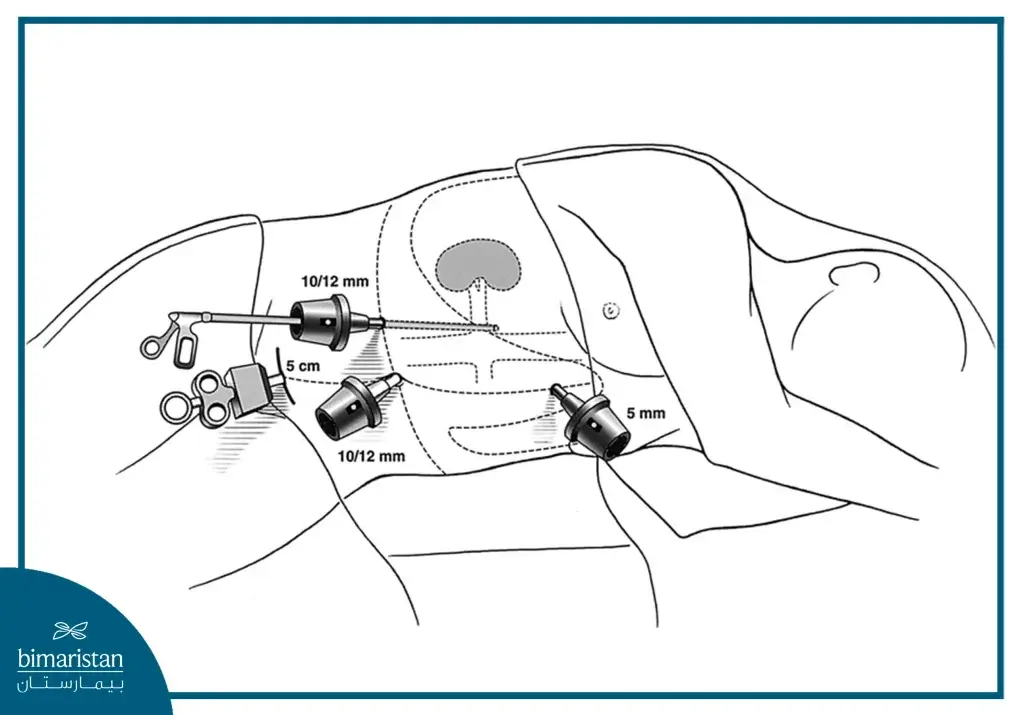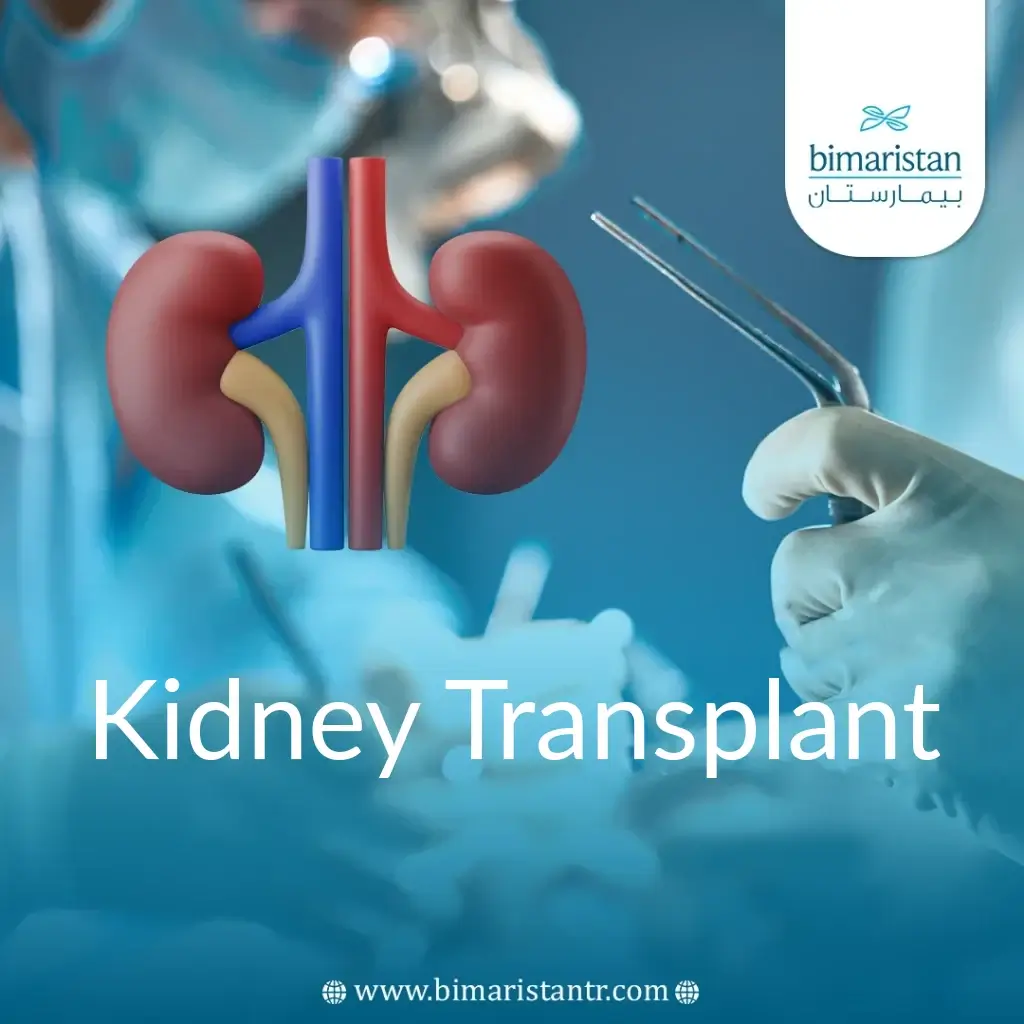Kidney transplant in Turkey is a life-saving procedure that improves the patient’s quality of life. Turkey has become one of the best countries for kidney transplantation, turning it into a global destination in organ transplantation, especially kidney transplantation.
Doctors often resort to kidney transplantation in cases of kidney failure or kidney disease in the final stage. In kidney transplant in Turkey, doctors transplant a kidney from a stranger (whether alive or recently dead) into the patient’s body.
Many patients have inquiries about kidney transplantation: how long does a kidney transplanter live? Is kidney transplantation dangerous? What is the best place for kidney transplantation in the world? Find out the answers to all these questions in this article.
What is a kidney transplant?
Kidney transplantation is a surgical procedure that aims to transplant a healthy kidney from a living or dead donor into a person suffering from kidney failure. Kidney failure is a serious condition that requires a kidney transplant to restore kidney function and improve the patient’s quality of life.
What is the importance of kidney transplantation?
Kidney transplantation is of great importance in the field of medicine and patient care for several reasons:
- Restoring kidney function: Kidney transplantation allows patients with kidney failure to receive a healthy kidney to replace the damaged kidney. This contributes to restoring kidney function and effectively purifying the blood of waste and excess fluid.
- Improving quality of life: Thanks to kidney transplantation, patients are able to eliminate continuous dialysis, a stressful process that affects their quality of life. Instead, they regain the ability to perform their daily activities normally and live more freely.
- Longevity: Kidney transplantation improves the chances of survival for patients with acute or chronic kidney failure. Instead of relying on dialysis for a long time, they have the opportunity to receive a new kidney that works properly and helps them live longer.
Kidney transplantation to treat kidney failure in Turkey
Before learning about kidney transplant in Turkey, we must understand the function of the kidney and what causes it to fail. We must also learn more about the importance of this operation.
Chronic kidney failure is a major health concern that affects a large number of people.
When kidney function declines to a certain level, a patient with end-stage renal failure needs either dialysis or a transplant to maintain their life.
Normal kidney function
The kidneys are essential organs for maintaining life. Most people are born with two kidneys located on either side of the spine, behind the abdominal organs, and below the rib cage.
The kidneys perform several key functions to maintain the health of the body, including:
- Purifying the blood to remove waste products from the metabolism of normal body cells, which includes excreting waste from the body in the form of urine and returning water and chemicals to the body when necessary.
- Regulating blood pressure by secreting several hormones.
- Stimulating the production of red blood cells by secreting the hormone erythropoietin.
The normal anatomy of the kidneys includes two bean-shaped organs that produce urine. This urine is then transported to the bladder via the ureter, where the bladder stores it.
When the body feels that the bladder is full, urine is expelled through the urethra.
What is kidney failure?
Symptoms of kidney failure are many, but kidney failure occurs when the kidneys stop working. If this kidney failure continues (chronically), it results in end-stage kidney failure.
As toxic waste products accumulate in the body, either dialysis or a kidney transplant is required.
Most important causes of kidney failure
- Diabetes
- High blood pressure
- Glomerulonephritis
- Polycystic kidney disease
- Severe anatomical problems in the urinary tract
- Treatments used to treat end-stage kidney failure
Treatment of kidney failure
There are not many options when the kidney reaches the stage of complete failure, and among the treatments we mention:
- Hemodialysis (blood washing): It is a mechanical process that cleans the blood of waste.
- Peritoneal dialysis: Where waste is removed by passing chemical solutions through the abdominal cavity.
- Kidney transplantation.
However, while none of these treatments cure a patient with end-stage kidney failure, the transplantation process provides the closest outcome to normal life because the transplanted kidney can replace the failed kidney.

Types of Kidney Transplants
Living Donor
Sometimes, family members, including brothers, sisters, parents, children (18 years or older), uncles, aunts, cousins, spouses, or close friends, may want to donate a kidney.
This person is called a “living donor,” and the donor must be in good health, well-informed about transplantation, and able to give consent for kidney donation.
Note: For a foreign patient coming from outside Turkey, the donor must be a family member up to the fourth degree, as a kidney cannot be obtained from a foreign person for the donor.
Deceased Donor
A deceased donor’s kidney comes from a brain-dead person, as organ donation for transplantation at the time of death is permitted, and families are allowed to provide such permission.
After the donation permission is granted, the kidney is removed and stored until a recipient patient is selected.
This type is not available for a foreign citizen because Turkish laws prohibit donations from a deceased Turkish citizen to a foreign citizen.
What are the conditions for kidney donation in Turkey?
The donor must meet several conditions to carry out the donation process, including:
- Age: The donor must be of legal age and be considered capable of making a decision regarding the donation. The minimum age required may vary between hospitals but usually requires that the donor be of legal age (between 18 and 65 years).
- Good health: The donor must be in good health and free from known chronic diseases such as diabetes, high blood pressure, heart disease, serious infectious diseases, kidney disease, and other conditions affecting kidney health.
- Absolute consent: The donor must be able to give his absolute and informed consent to donate the kidney. Comprehensive information is provided to the donor about the procedure, potential risks and expected results, and his full consent is obtained before proceeding with the procedure.
- Tissue matching analysis for kidney transplantation: Regardless of the type of living donor or deceased donor, special blood tests are required to determine the type of blood and tissue present.
These test results help match the donor kidney to the recipient. This test consists of four steps and is used for tissue-matching analysis for kidney transplantation.
Read about: Dialysis Shunt
Tissue Compatibility Analysis for Kidney Transplantation – Blood Type Test

There are four blood types: A, B, AB, and O. Each individual belongs to one of these groups. The recipient and donor must have the same blood type or two compatible blood types as shown in the list.
If the recipient is A, the donor must have either A or O blood type.
If the recipient is B, the donor must have either B or O blood type.
If the recipient is O, the donor must have an O blood type.
If the recipient is AB, the donor must have either A, O, AB, or B blood type.
AB is the easiest blood type to match because it accepts all other blood types, and the O blood type is the hardest to match.
Tissue Analysis for Kidney Transplantation – Histocompatibility Complex Test
The second test, the blood test for human leukocyte antigens (HLA), is called the histocompatibility complex, which distinguishes each individual’s tissues.
These markers are inherited from the parents, and this test is performed as a second stage for both the donor and the donor.
The higher the tissue compatibility rate, the better the transplant results, as the best results are obtained from twin siblings.
The operation can be performed whether the HLA tissue compatibility complex is fully, partially, or absent.
Tissue matching analysis for kidney transplantation – Crossmatch test
Throughout life, the body makes substances called antibodies that work to destroy foreign substances.
Individuals may make antibodies every time an infection occurs, during pregnancy, when a blood transfusion is given, or when undergoing a kidney transplant.
If there are antibodies in the donor kidney, the body may destroy the transplanted kidney.
For this reason, when a donor’s kidney is available, a test called crossmatching is performed to ensure that the recipient does not have pre-formed antibodies against the donor tissue.
The matching is performed by mixing the recipient’s blood with cells from the donor.
If the match is positive, it means that there are antibodies against the donor, and the recipient of that particular kidney should not receive it unless special treatment is given before the transplant to reduce the levels of antibodies.
If the match is negative, it means that the recipient does not have antibodies to the donor and is eligible for a kidney transplant.
Tissue Matching for Kidney Transplant – Serology
Virus testing, such as HIV, hepatitis, and cytomegalovirus (CMV), is also done to choose the appropriate preventive medications after the transplant.
These viruses are tested in any potential donor to help prevent the spread of disease to the recipient after the kidney transplant.
Conditions for Kidney Transplant in Turkey
Possible reasons for excluding transplantation in the recipient:
- Uncorrectable cardiovascular diseases
- History of cancer in the presence of vectors or when chemotherapy has not been completed
- Active infectious diseases
- Uncontrollable mental illness
- Current drug abuse
- Current neurological impairment with significant cognitive impairment and inability to make decisions
The patient’s age is no longer an obstacle, as one study showed that age only affects the presence of concomitant diseases.
Have you read about: Robotic Kidney Transplantation
How to perform a kidney transplant in Turkey
The transplant surgery is performed under general anesthesia, and the operation usually takes 2-4 hours.
This type of operation is a heterotopic transplant, meaning that the kidney is placed in a different location than the existing kidney (as for liver transplants and heart transplants, they are transplants in the same location, in which the affected organ is removed and the transplanted organ is placed in the same location), where the kidney is transplanted in the front part of the lower abdomen (pelvis).
First, the new kidney is examined, and the renal artery and vein are identified, then they are washed with a protective solution (to check for any leakage), if there are leaks, they are repaired, while preserving the full length of the ureter and removing any surrounding fat.
The kidney is placed outside the peritoneum in the iliac fossa, usually on the right side. There, the iliac vessels are examined, and all identified lymphatic vessels are tied.
An anastomosis is made between the donor’s renal vein and the recipient’s external iliac vein and between the donor’s renal artery and either the external or internal iliac artery.
The ureter is anastomosed to the bladder by forming a ureterovesical anastomosis.
The original kidney is usually not removed unless it causes serious problems such as uncontrolled high blood pressure, recurrent kidney infections, or if it is significantly enlarged.
The artery that carries blood to the kidney and the vein that carries blood away is surgically connected to the artery and vein already in the recipient’s pelvis. The ureter that carries urine from the kidney is connected directly to the bladder.
The recovery period in the hospital is usually 3 to 7 days.
Kidney transplant complications
If you are wondering if kidney transplantation is dangerous, we will explain the most important risks that can occur, although they are rare. Despite their rarity, Turkey has recently worked to greatly reduce the complications and risks of kidney transplant in Turkey.
Kidney transplant risks may occur, although they are rare, and despite their rarity, Turkey has recently worked to significantly reduce the complications and risks of kidney transplantation in Turkey.
Risks of kidney transplant in Turkey include:
- Delayed functioning of the transplanted kidney: The kidney must be washed (blood washed) in the first week after transplantation; this varies from one center to another, and this complication is rare if the donor is alive.
- Renal artery thrombosis (rare 1%).
- Renal vein thrombosis (6%).
- Renal artery stenosis: It usually appears several months after transplantation with high blood pressure and poor kidney function, as it is diagnosed by angiography, and the preferred treatment is usually to repair the vessels.
- Ureteral leaks occur at the site of the ureter-bladder anastomosis, which leads to a decrease in the amount of urine and increased abdominal pain.
- Urinary tract obstruction, due to narrowing in the distal ureter as a result of external pressure from the hematoma (it is treated by a tube that is placed to reduce the pressure).
The most common cause of death after surgery in the first year is cardiovascular disease.
Most other long-term complications are often associated with the use of immunosuppressive agents, such as recurrent infections, diabetes, or malignancy.
Post-Kidney Transplant Period in Turkey
The post-transplant period requires careful monitoring of kidney function, monitoring for early signs of rejection, and adjusting various medications, which alert to the increased incidence of immunosuppressive effects such as infection and cancer.
Just as the body fights bacteria and viruses (germs) that cause disease, it can also fight the transplanted organ because it is a “foreign body.” When the body fights the transplanted kidney, rejection occurs.
Rejection is an expected side effect of transplantation, and up to 30% of people who undergo kidney transplantation will experience some degree of rejection.
Most rejection occurs within six months after transplantation, but it can occur at any time, even years later. Prompt treatment can reverse rejection in most cases.
Kidney Transplant Anti-Rejection Medications
Immunosuppressive or anti-rejection medications for kidney transplantation help prevent rejection, as these medications will have to be used for life, and if stopped, the transplanted kidney may fail.
This is a list of the medications used, and the doctor will choose the appropriate one according to the patient’s condition.
Anti-inflammatory medications
Prednisone (a type of cortisone) is taken orally or intravenously and is given in low doses to minimize side effects as much as possible. The following are the most important side effects that may occur due to high doses:
- Change in body shape, such as a round face and fat accumulation around the abdomen
- Slow healing of wounds
- High blood sugar
- Mood changes
- Muscle weakness and joint pain
- Cataract formation, which sometimes leads to cataracts
- Peptic ulcer
Anti-proliferative kidney transplant medications
- Azathioprine
- Mycophenolate mofetil
- Mycophenolate sodium
- Sirolimus
Cytokinin inhibitor kidney transplant medications
- Cyclosporin
- Tacrolimus
Anti-lymphocyte medications
- Lymphocyte inhibitory globulin
- Muromonab-CD 3
- Antibodies For interleukin-2 receptors (Zenapax® or Simulect®)
- Alemtuzumab
Risks from using medications after kidney transplantation are:
- Weight gain after kidney transplant in Turkey due to the use of cortisone as described above
- Thinning of the bones
- Increased hair growth
- Acne
- Increased risk of some types of skin cancer and non-Hodgkin lymphoma
Kidney Transplant in Turkey from a Living Donor
Living donor kidney transplants are the best option for many patients for several reasons:
- Better long-term outcomes
- No need to wait on a transplant waiting list to receive a kidney from a deceased donor.
- The surgery can be planned in a timely manner for both the donor and the recipient.
- Reduces the risk of complications or rejection and improves the early function of the transplanted kidney.
- Any healthy person can donate a kidney. When a living person donates a kidney, the remaining kidney enlarges slightly because it takes over the work of two kidneys.
- Donors do not require special medications or diets. Once they recover from surgery, they return to their normal lives.
As with any major surgery, there is a chance of complications, but kidney donors have the same life expectancy as normal people, their general health is unaffected, and their kidney function is similar to most others.
Potential Barriers to Living Donation
- Age under 18
- Uncontrolled high blood pressure
- History of pulmonary emboli or recurrent thrombus formation
- Problems with blood clotting time
- Uncontrolled mental illness
- Morbid obesity
- Uncontrolled cardiovascular disease
- Chronic lung disease with poor oxygenation or ventilation
- History of skin cancer
- Presence of cancer with metastases
- Bilateral or recurrent nephrolithiasis (kidney stones)
- Chronic kidney disease (CKD) stage 3 or less
- Proteinuria > 300 mg/day excluding postural proteinuria
- HIV infection
If the person completes the medical, surgical, and psychosocial evaluation, he or she will undergo the removal of one kidney.
Robotic Kidney Transplant in Turkey
Most transplant centers use a laparoscopic surgical technique to remove the kidney and, in some centers, a robotic one.
This type of surgery, performed under general anesthesia, uses very small incisions, a thin endoscope with a camera to see inside the body and special tools to remove the kidney.
Compared to the large incision surgery used in the past, laparoscopic surgery has greatly improved the donor’s recovery in several ways:
- Reduced need for strong painkillers
- Shorter recovery time in the hospital
- Quicker return to normal activities
- Complication rates are very low
Robot kidney transplantation has also recently been developed, and it has been beneficial for both the donor and recipient.
Bimaristan Medical Center remains one of Turkey’s most important medical centers for treatment and organ transplantation.
How to perform a kidney transplant in Turkey for a donor

The kidney, renal artery, renal vein, and ureter are removed, along with a patch of the aorta, a patch of the vena cava, and a patch of the ureter.
For living donor kidney transplantation, nephrectomy is most commonly performed laparoscopically, and robotic kidney transplantation is now possible. The left kidney is preferred because of the length of the renal vein, but a patch of the aorta or inferior vena cava cannot be taken in these cases.
Once the kidney is removed, it should be flushed with preservation fluid immediately.
The mortality rate for donor nephrectomy is low, estimated at about 1 in 3,000 for all surgical approaches.
The procedure takes 2-3 hours, and hospital recovery time is usually 1-3 days. Donors are often able to return to work within 2-3 weeks after the procedure.
Sometimes, the kidney needs to be removed through a large surgical incision.
Although laparoscopy is increasingly being used instead of open surgery, the surgeon may occasionally choose to perform an open procedure when individual anatomical differences in the donor indicate that this would be a better surgical approach.
The quality and function of kidneys harvested using either technique works well, regardless of the technique, and all donors will need lifelong monitoring of their general health, blood pressure, and kidney function.
Special programs for kidney transplantation from living donors
Many patients have relatives or non-relatives who would like to donate a kidney but are unable to do so because their blood type or tissue type does not match.
In such cases, the donor and recipient are said to be “incompatible.”
Blood type incompatible kidney transplantation
This program allows patients to receive a kidney from a living donor who has an incompatible blood type. To be able to receive such a kidney, the patient must undergo several treatments before and after the transplant to remove harmful antibodies that could lead to rejection of the transplanted kidney.
A special process called plasmapheresis, which is similar to dialysis, removes these harmful antibodies from the patient’s blood.
Patients need multiple treatments with plasmapheresis before transplantation and may need several more treatments after transplantation to keep their antibody levels low.
Some patients may also need to have their spleen removed at the time of transplant surgery to reduce the number of cells that produce antibodies.
Positive crossmatching and sensitized kidney transplantation
This program allows kidney transplants on patients who have developed antibodies against their kidney donors – a condition known as “positive crossmatching.”
This process is similar to kidney transplants, which occur when the blood type is incompatible. Patients receive medications to reduce their antibody levels or may undergo plasma treatments to remove harmful antibodies from their blood.
If the donor antibody levels are successfully reduced, they can proceed with the transplant.
Blood-type incompatible kidney transplants and positive/sensitized kidney transplants have been very successful in Turkey and internationally.
The success rates are close to those of transplants from compatible living donors and are better than those from deceased donors.
Kidney transplant from a deceased donor
When an individual does not have a living donor but is an acceptable candidate for transplantation, they will be placed on a waiting list.
Unfortunately, receiving a kidney from a deceased donor is not possible for a foreign national because Turkish law prohibits donations from a deceased Turkish person to a foreign patient.
Read more about: Organ Transplantation in Turkey
My Experience with Kidney Transplant in Turkey
Eileen Krynicki says twenty years after her kidney transplant:
“I did not expect this success and activity after my kidney transplant. I had the operation twenty years ago, and now I am in the best condition of my life.
But I followed the doctor’s instructions to the letter and took all the medications he told me to take, and this is what I advise all those who will have a kidney transplant.”
Her journey in finding a living donor to give her a kidney was not easy, but her sister gave up a part of her body to relieve her younger sister from the torment of dialysis.
How long does a kidney transplant live?
Kidneys from living donors generally last longer.
Most kidney loss is due to rejection, but bacterial infections, circulatory problems, cancer, and recurrence of the original kidney disease can all lead to kidney loss.
A table showing the lifespan of the transplanted kidney and the patient’s lifespan after donation:
| Ten years | Five years | Three years | One year | Donor type | |
| 57% | 80% | 88% | 95% | Potential age of the transplanted kidney | Living donor |
| 64% | 90% | 95% | 98% | Age of the potential patient | |
| 41% | 67% | 79% | 90% | Potential age of the transplanted kidney | Deceased donor |
| 61% | 81% | 88% | 95% | Age of the potential patient |
Cost of Kidney Transplant in Turkey
The cost of kidney transplant in Turkey starts from 15 thousand US dollars, and the price may vary depending on the degree and quality of the hospital.
Best Kidney Transplant Hospitals in Turkey
Turkey is a world-leading destination for kidney transplantation, with many specialized and prestigious hospitals in this field. One of these well-known centers is Bimaristan, which is a comprehensive medical center with a group of specialized hospitals across Turkey.
In the end, we find that kidney transplantation is a safe procedure, and doctors can perform it on almost all patients due to the rapid medical development in Turkey, and kidney transplantation has become the ideal solution for kidney failure and has given patients great hope in life after losing their kidneys.
| Type of Hospital | Cost Range without viral enfection | Cost Range with viral enfection |
|---|---|---|
| State hospital | $12,000 – $15,000 | $22,000 – $25,000 |
| University hospital | $14,000 – $18,000 | $24,000 – $28,000 |
| Private hospital | $15,000 – $25,000 | $25,000 – $35,000 |
Sources:
- Kidney.org
- UCSF Transplant Surgery
- National Institute of Diabetes and Digestive and Kidney Diseases

